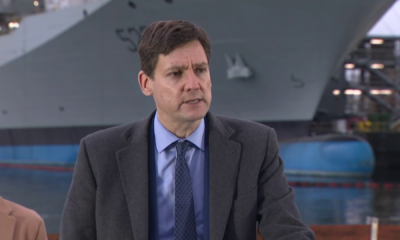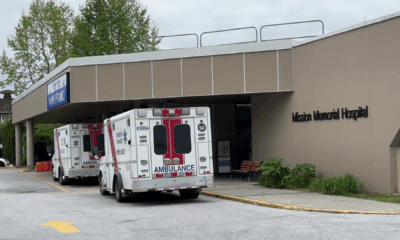Local News
Fast-tracking of new B.C. pipeline ‘highly, highly likely’: Carney
The discourse around building an oil pipeline to the B.C. coast is heating up, with Prime Minister Mark Carney now saying “highly, highly likely” to be deemed a nationally significant project.
That would render it eligible for fast-tracking under the federal government’s recent, and controversial, Bill C-5.
Carney made the comment in an interview with Postmedia’s Calgary Herald while in town for the Calgary Stampede over the weekend.
While no such pipeline has been proposed yet, Carney went on to add that he believes it’s also “highly, highly likely” that one will come forward.
Andrew Leach, professor of economics and law at the University of Alberta, says that in light of trade turbulence with the United States, finding new exports could be a big win.
“It’s not that surprising, I think it would have been surprising to hear anything else,” Leach said. “As long as oil prices remain relatively high and companies are willing to come forward with new projects to bring in new production, and that brings with it royalties, revenues, et cetera.”
But these exceptional efforts to strengthen Canada’s economic independence are deeply concerning to environmental groups, who say the math is off, and the economic benefits aren’t factoring in the potential damage caused by increasing our reliance on hydrocarbons.
“The cost of climate change, which is itself very expensive, firefighting, flood control, those are all increasing budgets every year for provinces throughout the country,” Margot Venton, Ecojustice lawyer and nature program director, told The Leader Spirit.
Meanwhile, Alberta Premier Danielle Smith and Ontario Premier Doug Ford signed a Memorandum of Understanding Monday, looking to create new opportunities for railways and pipelines between the two provinces.
“There will be a moment when the rubber will hit the road. You can only talk the talk for so long before you start seeing some action around it,” Smith explained.
While B.C. Premier David Eby says he’s not necessarily opposed to a pipeline; there are a number of conditions he would need to see met, and a number of higher priorities. Leach says ultimately, it’s not really a provincial decision.
“If the federal government is determined to build a pipeline, they have the jurisdiction to do so and we saw that with Trans Mountain,” Leach said.
While protracted legal battles slowed construction of the Trans Mountain Pipeline, the federal government may be able to act more quickly in the future with the aid of Bill C-5.












